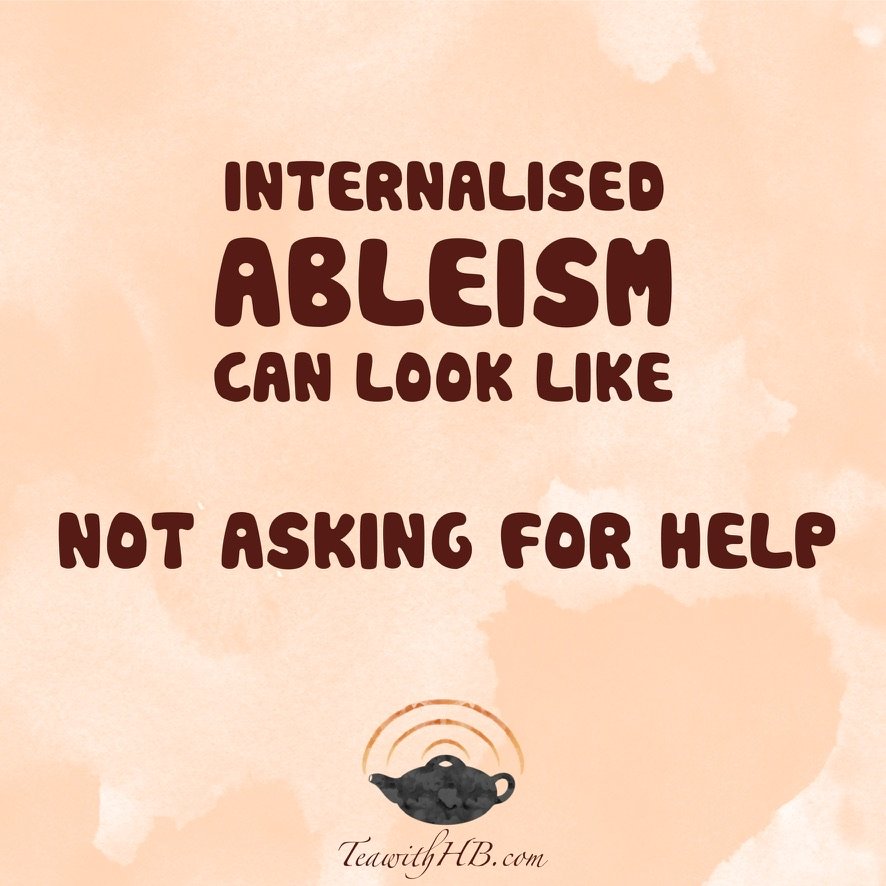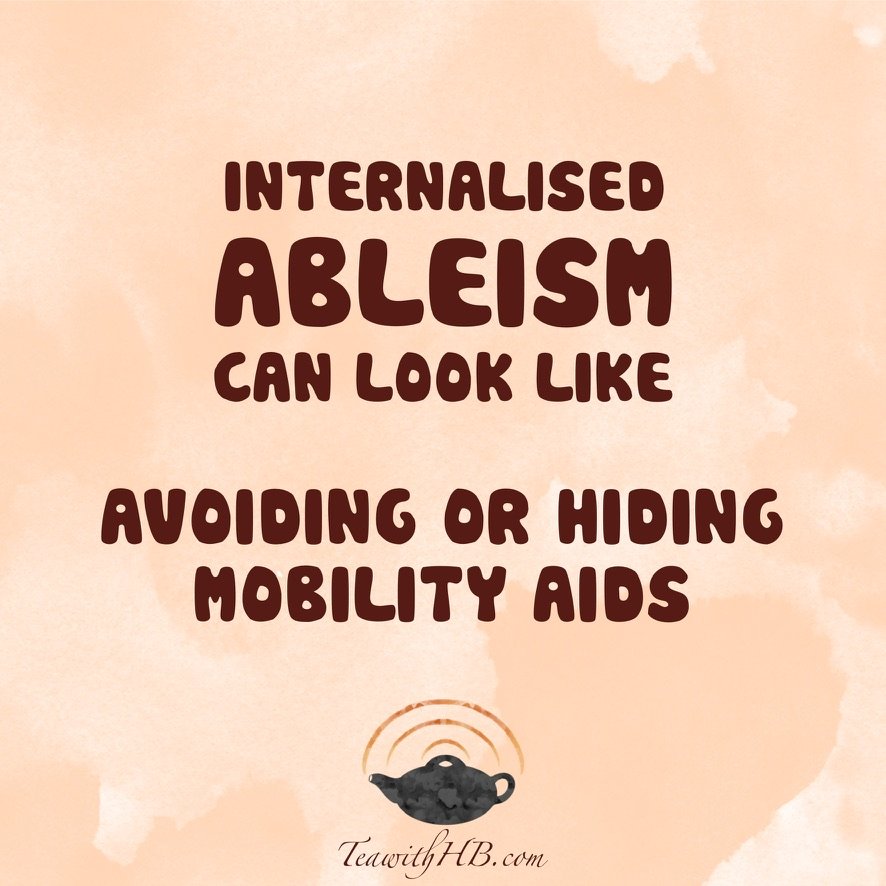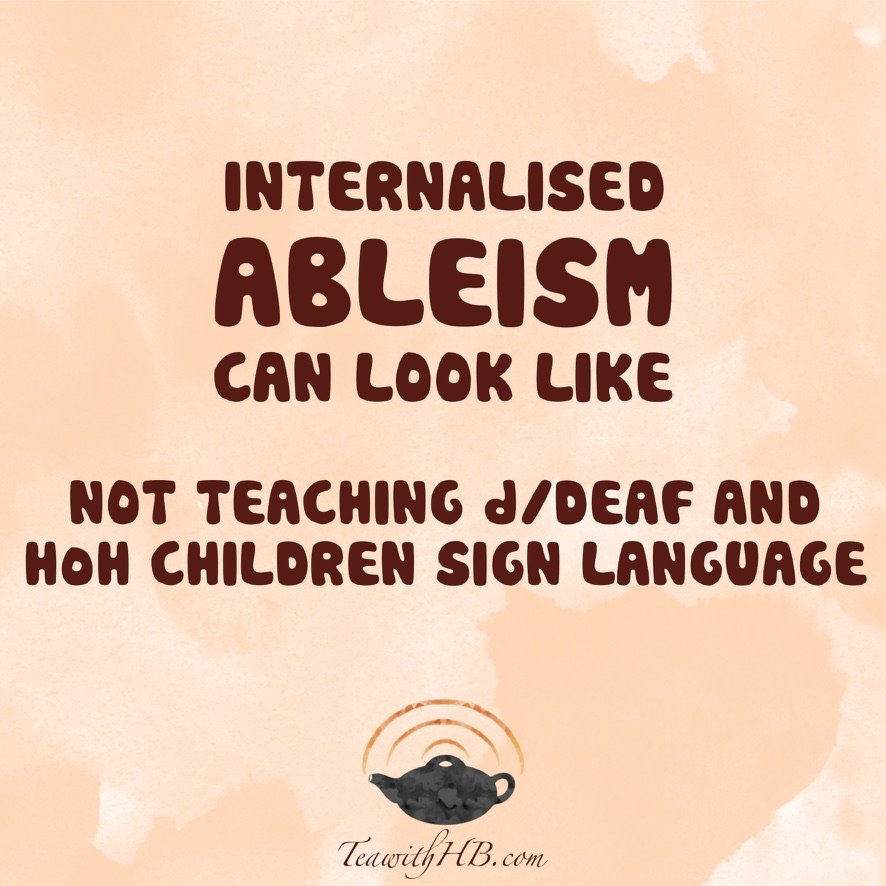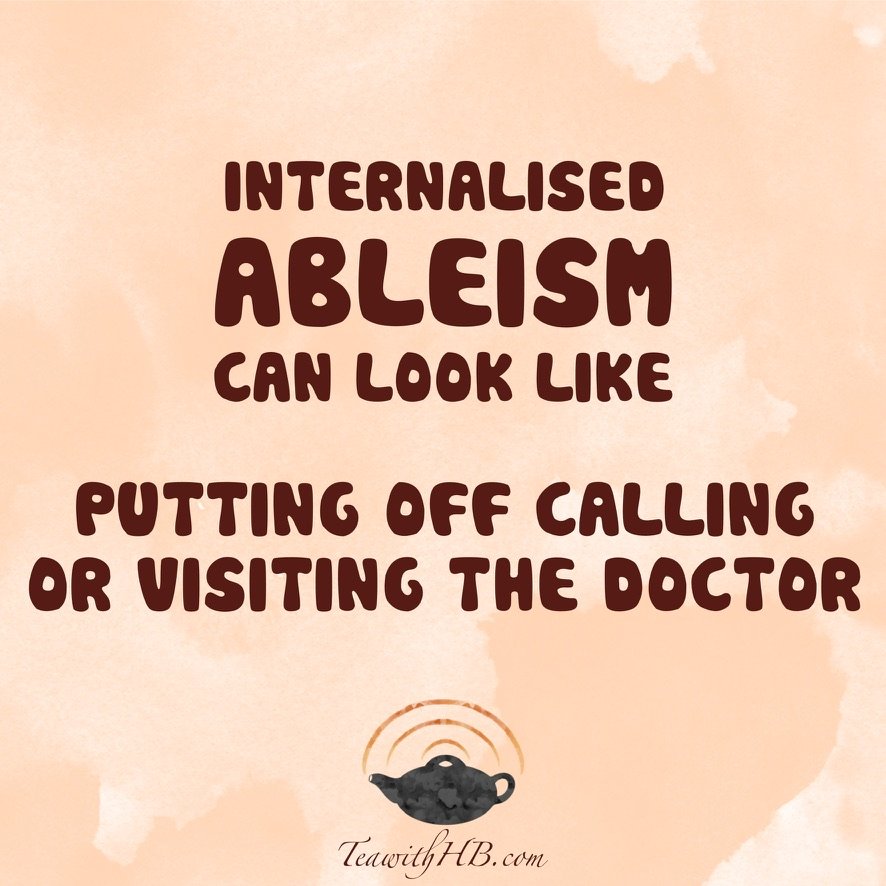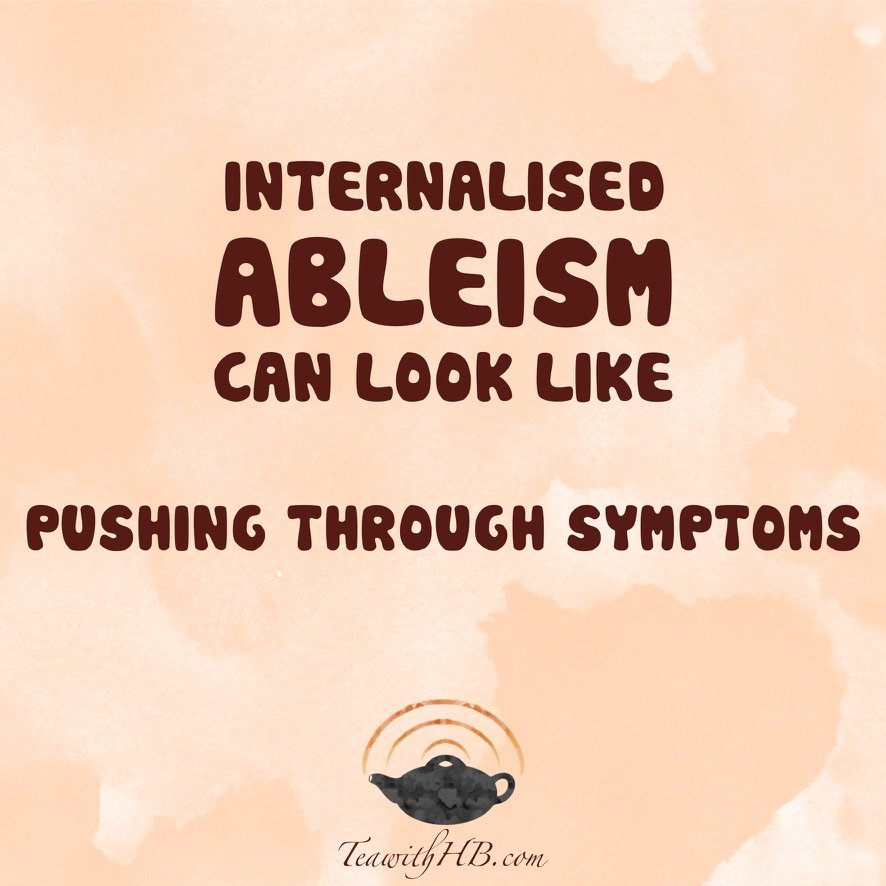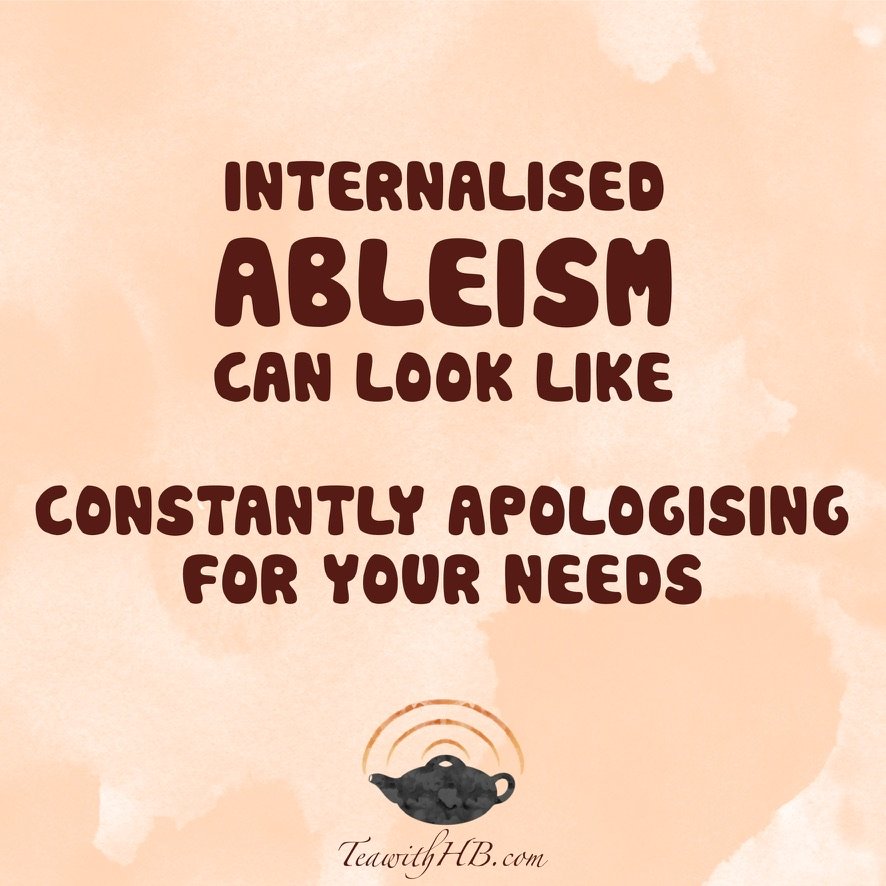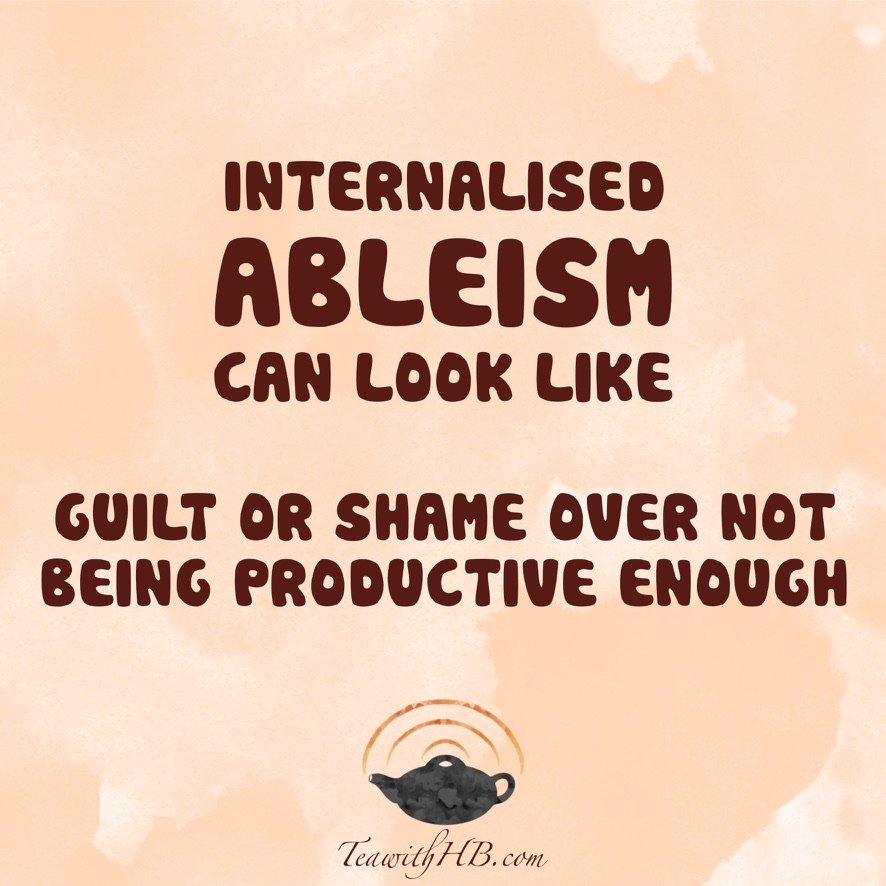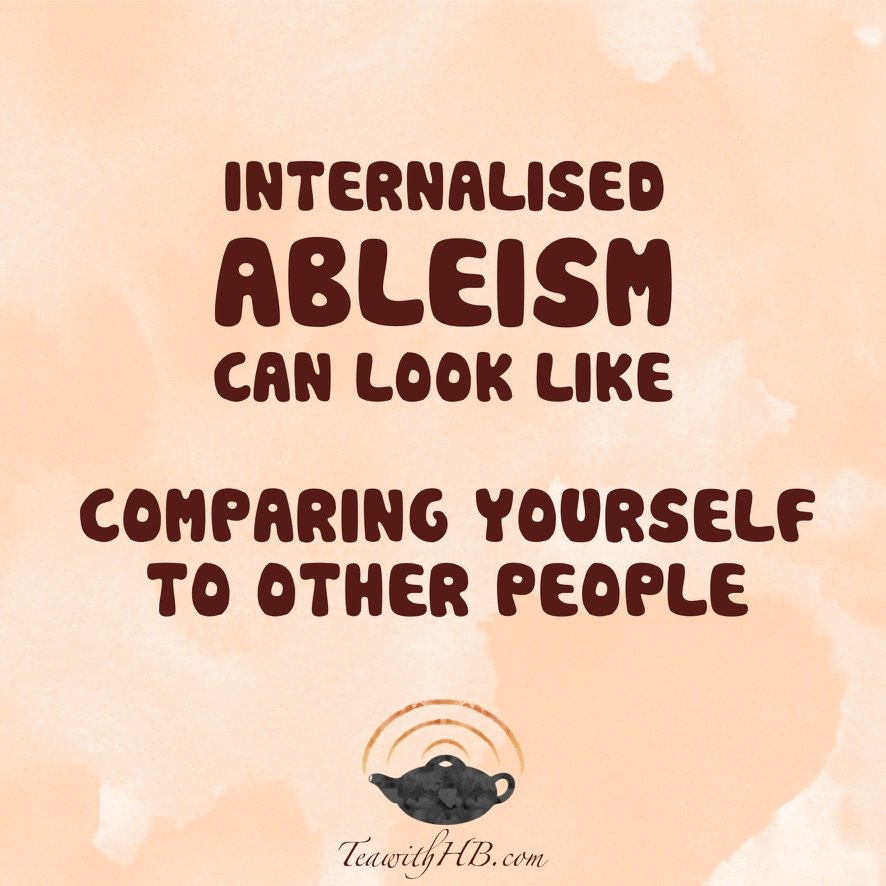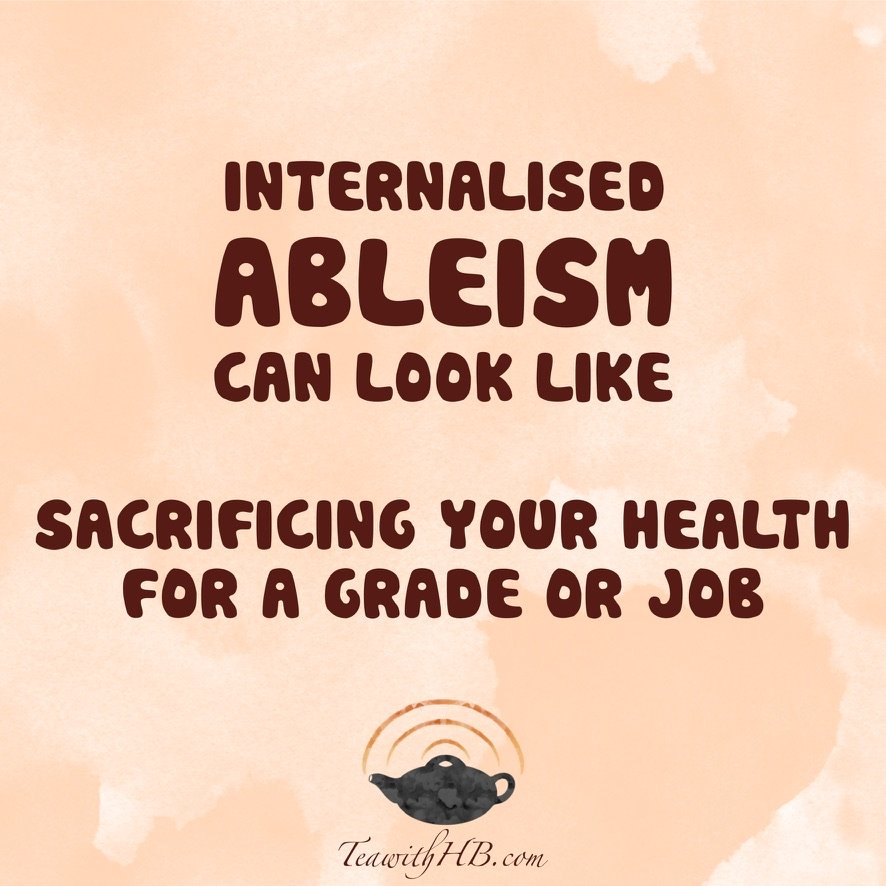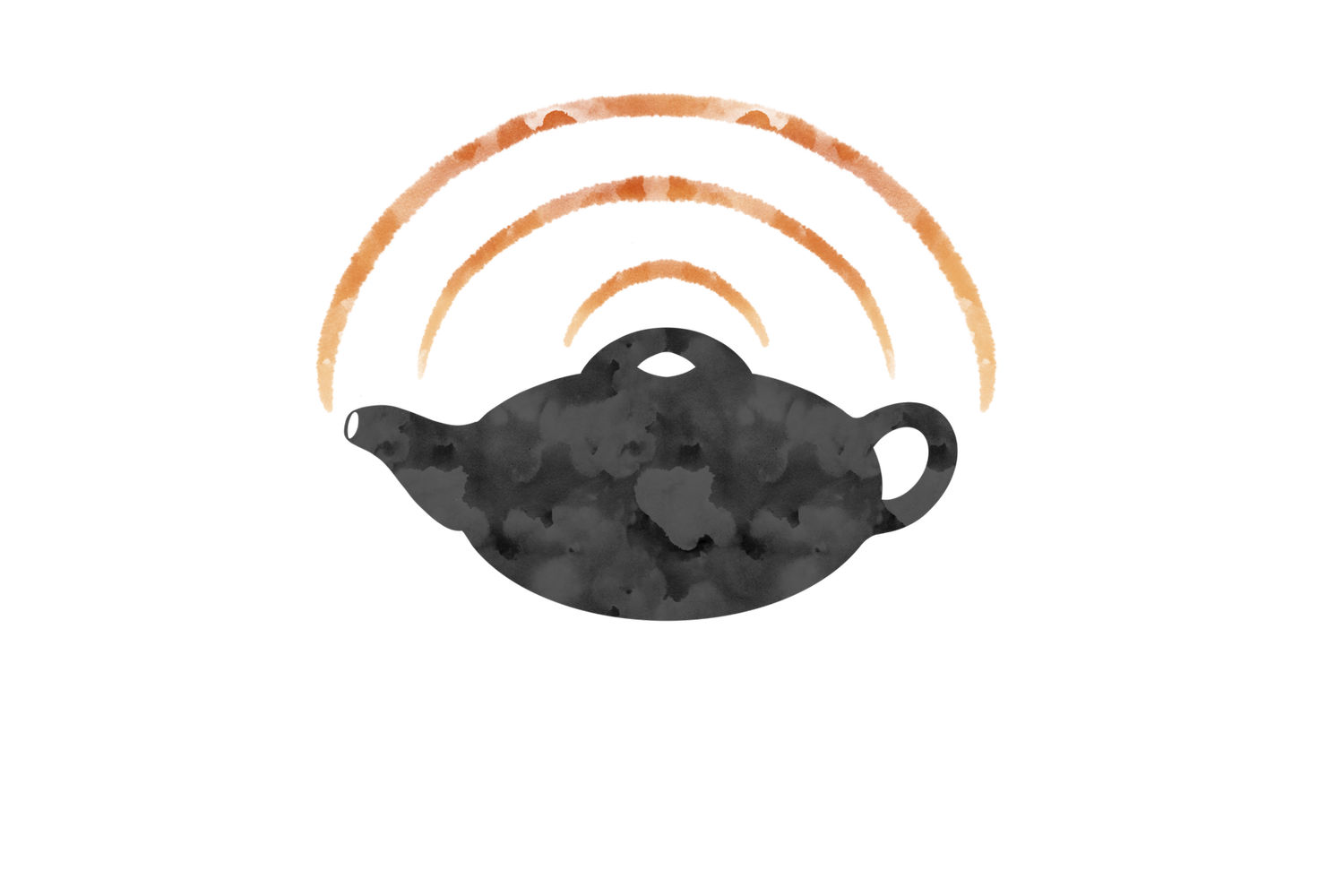How to Recognise Ableism
Here are some common ways ableism shows up in ALL of us, not just disabled people!
Not asking for help
Avoiding or hiding Mobility Aids
Not teaching d/Deaf and Hard of Hearing Children Sign Language
Putting off calling or visiting the doctor
Pushing through symptoms
Constantly apologising for your symptoms
Guilt or shame for not being productive enough
Comparing yourself to other people
Sacrificing your health for a grade or job
Internalised ableism* actually looks pretty similar in everyone. Why? The core of internalised ableism is feeling less than- less worthy, less useful, less able, less deserving. And don’t we all feel that way sometimes? In a society where hustle culture dominates, and your worth is defined by a grade or paycheck, it is hard not to feel inadequate! I’m not saying we all experience discrimination, but ableism does negatively impact all of us whether- we know it or not.
Internalised ableism thrives when it’s internal, so we need to talk about it! Be open! Do the opposite of what your inner ableism tells you! Rest is radical. Extending deadlines is productive. Asking for help is helpful!!! You can learn more about unlearning internalised ableism here!
Revolutionising our systems (by asking for accessibility, prioritising our health and wellbeing, and demanding equity for all) is the solution to ableism! So, on your journey to undoing ableism, internal and systemic, I hope you’ll remember that listening to your body is the best thing you can do.
*Internalised ableism is the view that disabled people are inferior. Just like internalised sexism or internalised racism, everyone has internalised ableism.
